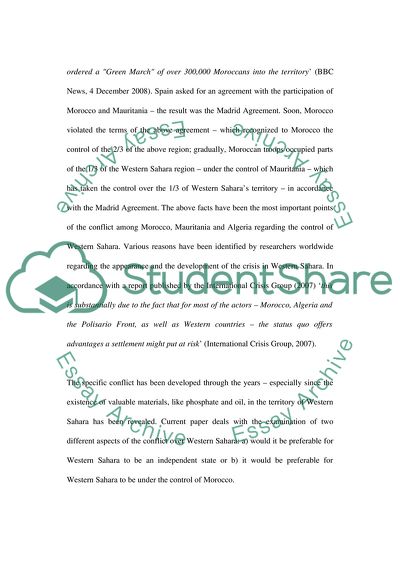Cite this document
(The Conflict about Western Sahara Research Paper, n.d.)
The Conflict about Western Sahara Research Paper. Retrieved from https://studentshare.org/politics/1723441-the-conflict-about-western-sahara-either-it-is-an-independent-state-or-moroccan-territory
The Conflict about Western Sahara Research Paper. Retrieved from https://studentshare.org/politics/1723441-the-conflict-about-western-sahara-either-it-is-an-independent-state-or-moroccan-territory
(The Conflict about Western Sahara Research Paper)
The Conflict about Western Sahara Research Paper. https://studentshare.org/politics/1723441-the-conflict-about-western-sahara-either-it-is-an-independent-state-or-moroccan-territory.
The Conflict about Western Sahara Research Paper. https://studentshare.org/politics/1723441-the-conflict-about-western-sahara-either-it-is-an-independent-state-or-moroccan-territory.
“The Conflict about Western Sahara Research Paper”, n.d. https://studentshare.org/politics/1723441-the-conflict-about-western-sahara-either-it-is-an-independent-state-or-moroccan-territory.


